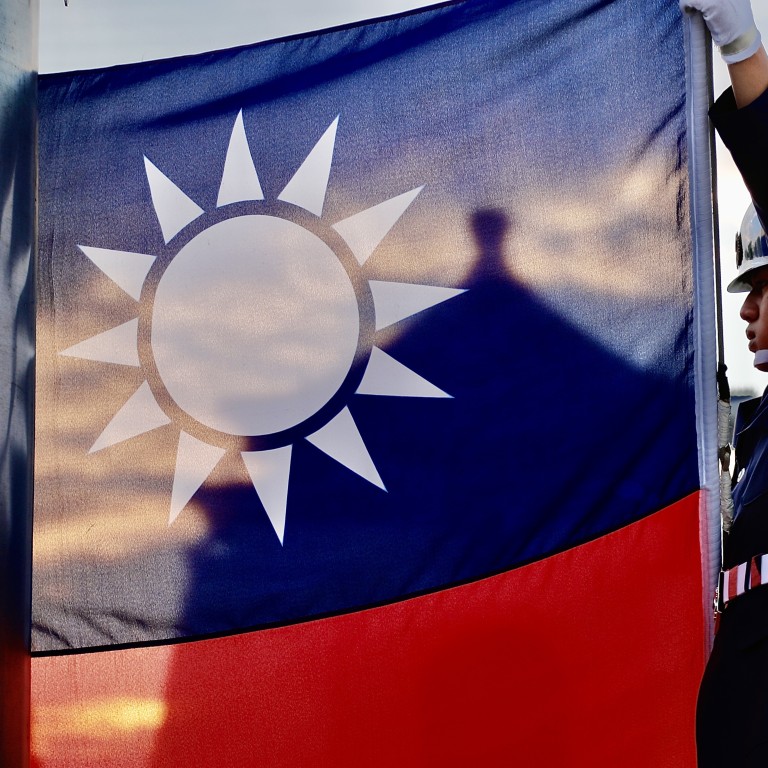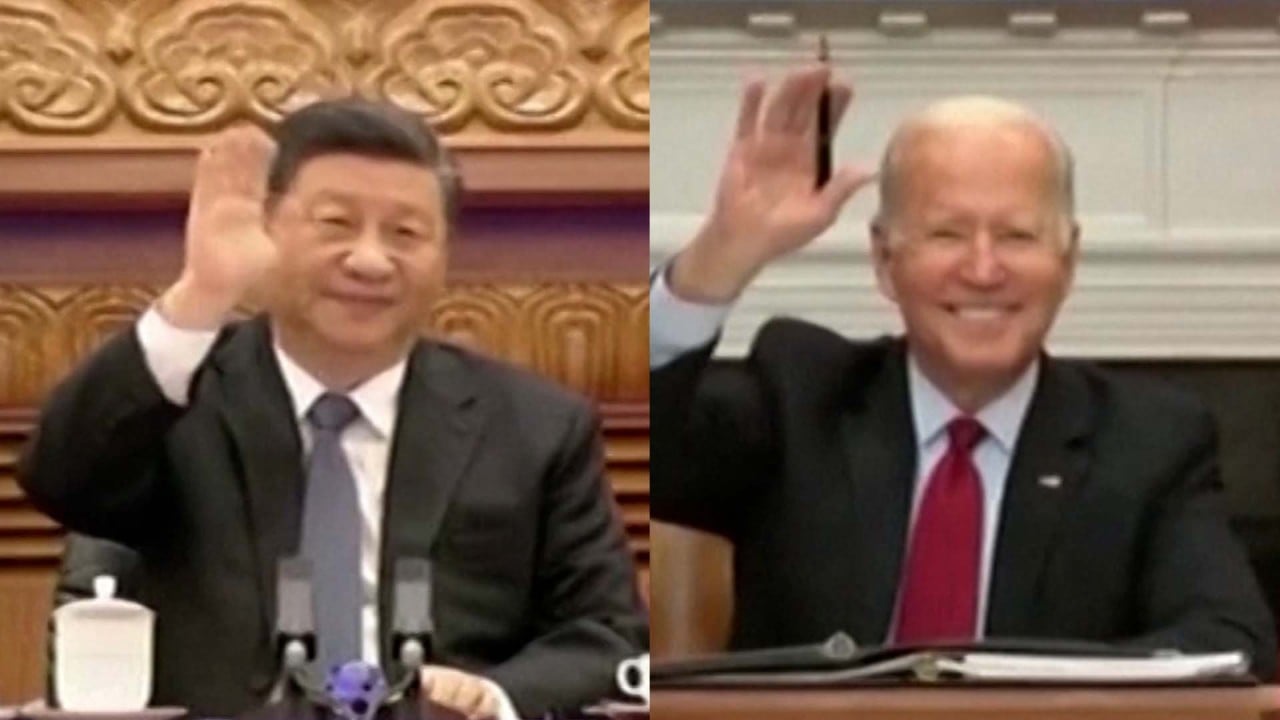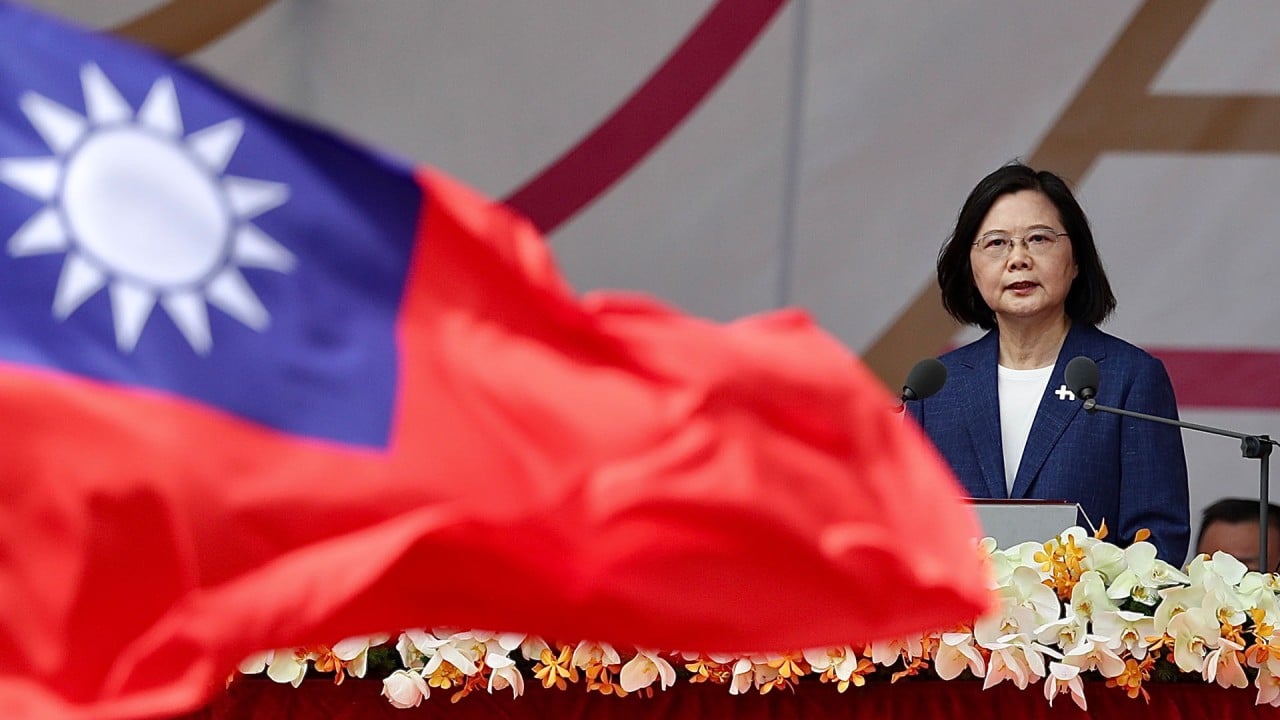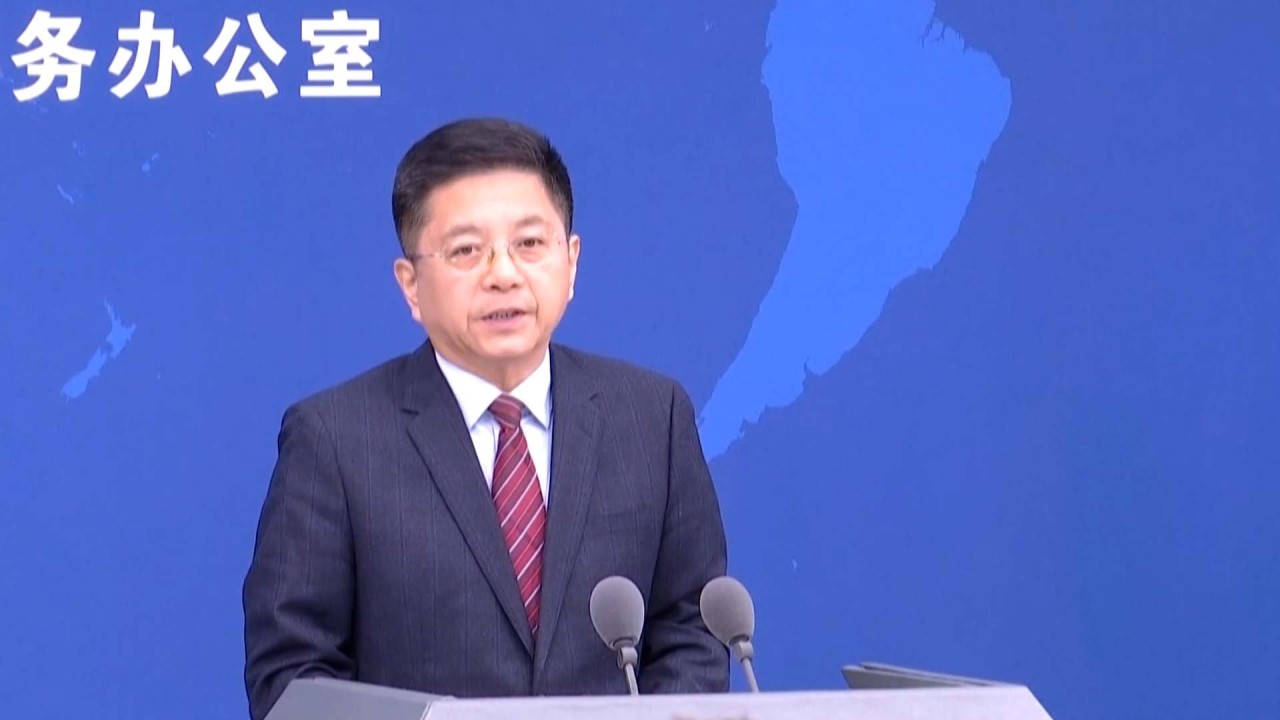
Taiwan independence: the ‘red line’ that Tsai Ing-wen and the DPP ‘won’t cross’
- Beijing has warned both the island and Washington against support for separatist ambitions
- But political winds on Taiwan mean there is little for mainland China to worry about, observers say
The warnings have come firmer and faster in the last year, particularly in recent weeks.
China was “patient” and sought peaceful reunification with sincerity, Xi said, but “if Taiwanese independence separatist forces provoke or even break through the red line, we will have no alternative but to take drastic measures”.
Just a few days later, Chinese foreign ministry spokesman Zhao Lijian was more graphic.
“They are just like an egg knocking itself against a stone and an ant trying to shake a huge tree – doomed to failure,” Zhao said, describing the efforts of separatist forces on the island.
But observers in Taiwan said there was cause for less concern about the island declaring independence, with political winds on Taiwan in favour of the status quo and little room for the hardcore pro-independence camp to seek to “build a Taiwan nation”.

02:25
Xi Jinping and Joe Biden call for mutual respect and peaceful China-US coexistence
In 1999, the party adopted a resolution, saying it recognised Taiwan as a sovereign nation and that any change to the “status quo” had to be decided by Taiwanese voters via a referendum.
It affirmed the DPP’s position that Taiwan was not part of the People’s Republic of China but would seek to establish friendly relations with China as two separate nations.
Since coming to power, Tsai has refused to accept the one-China principle, which Beijing views as a foundation for any exchanges. But she has also stopped short of declaring independence for the island.
Hardline independence forces are pushing her to move in that direction and introduce a new constitution that would establish Taiwan as a republic.
The island’s existing constitution is a legacy of the Kuomintang, which established the Republic of China in 1912 before moving the ROC to Taiwan after being defeated by the Chinese communists at the end of a civil war in 1949.
But the DPP has held its ground, with Tsai saying the island already enjoyed independent sovereignty and there was no need to declare independence.

02:23
Taiwanese President Tsai Ing-wen says island 'will not bow' to mainland China
Like Chen Shui-bian before her, Tsai realised when she came to power that it was impossible for the island to declare formal independence, given Beijing’s persistent warnings that it would lead to war, according to Shih Cheng-feng, former chairman of the Formosa Alliance, a hardline pro-independence party, formed in 2019.
“Xi Jinping does not need to worry about formal independence of Taiwan as almost all radical independence forces have more or less been mollified by Tsai Ing-wen, which allows her to have the absolute say in the status quo of Taiwan,” he said.
“It was a tactic to gain votes from supporters in order to secure power,” Shih said.
“Tsai and her DPP have on the one hand promoted the concept that the [Republic of China] is equal to Taiwan to the public and on the other hand done their best to placate the deep green or hardline supporters, including offering them government posts when they voice their opposition to Tsai.”
But Shih said Taiwan should be a “real independent state” that was treated equally in the world and had access to international organisations.
Beijing in no rush to take Taiwan by force, say Chinese government advisers
In an interview with former president Chen in July, Chiou, former secretary general of Taiwan’s National Security Council and a vice-premier, said a declaration of independence was not a decision that could be made by Taiwanese people.
“Rather, we need to consider the current international situation and China’s possible action,” he said.
Chiou, a veteran pro-independence figure within the DPP and head of Taiwan-Japan Relations Association, said it was his understanding that the US did not support independence for Taiwan.
“This is the cruel reality,” he said.
It is a reality that appears to have broad support on the island, with opinion polls indicating that most people in Taiwan are in favour of keeping the status quo. According to a survey released by the Mainland Affairs Council, Taiwan’s top mainland policy planner, on Thursday, 85 per cent of the public supported maintaining the existing conditions as opposed to 6.8 per cent who wanted immediate independence of the island and 1.6 per cent who opted for immediate unification with the mainland.

01:15
China insists Taiwan has no right to join United Nations
Lai I-chung, president of the Prospect Foundation, a Taipei-based think tank, said Tsai was just trying to maintain the status quo to “avoid Beijing from using the excuse of Taiwan independence to use force” on the island.
“Most people today opt for maintaining the status quo and Tsai’s policy best suits the interest of the general public,” he said.
Wang Kung-yi, director of Taiwan International Strategic Study Society, said the DPP was well aware that independence was not an option.
“To do this, the DPP would need to institute a new constitution and terminate the existing one, but because of the strict threshold that requires more than three-quarters of the legislature’s vote, it would be almost impossible for the DPP to do so,” Wang said.
“What the DPP has been doing is to promote Taiwanese identity and anti-China sentiment, which it could conveniently use to increase its chances in elections to retain power.”
These tactics also enabled the DPP to dampen voices for unification and erode the support base of the opposition KMT, Wang said.
But now the question was just how much Beijing would tolerate the rise of Taiwanese identity and anti-mainland sentiment.

